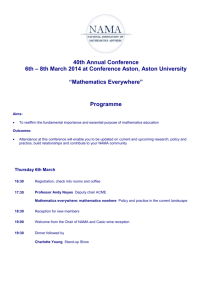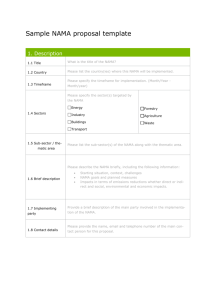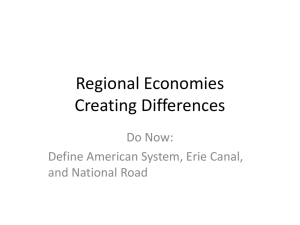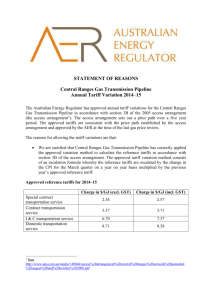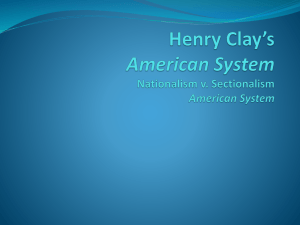Latin American trade union statement on NAMA
advertisement
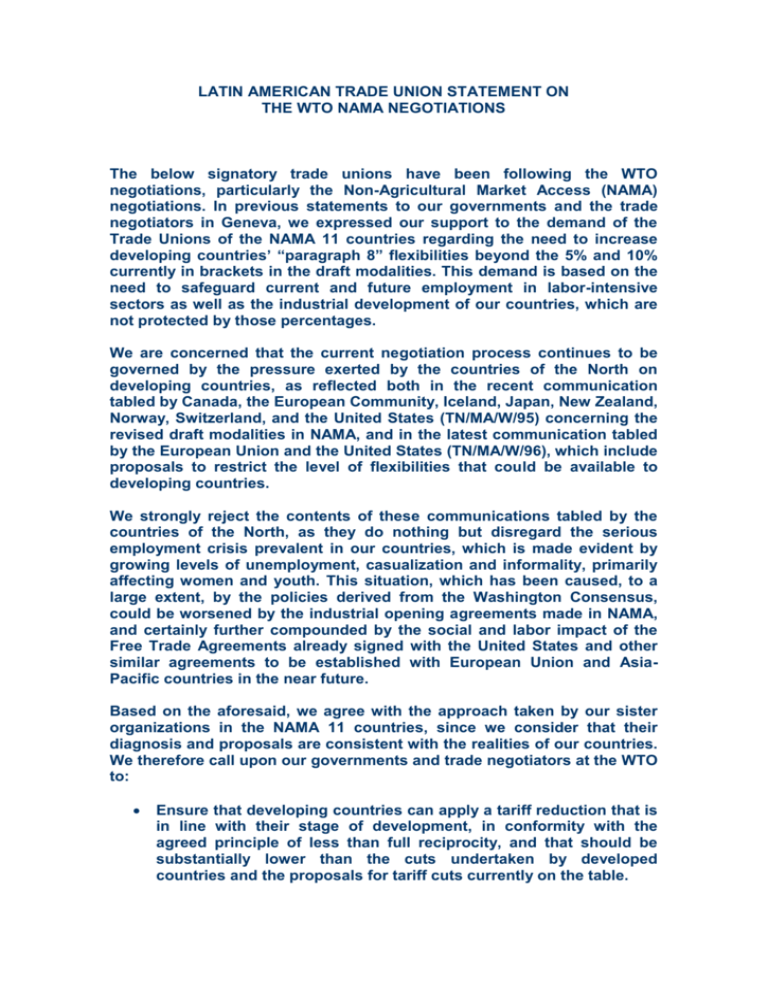
LATIN AMERICAN TRADE UNION STATEMENT ON THE WTO NAMA NEGOTIATIONS The below signatory trade unions have been following the WTO negotiations, particularly the Non-Agricultural Market Access (NAMA) negotiations. In previous statements to our governments and the trade negotiators in Geneva, we expressed our support to the demand of the Trade Unions of the NAMA 11 countries regarding the need to increase developing countries’ “paragraph 8” flexibilities beyond the 5% and 10% currently in brackets in the draft modalities. This demand is based on the need to safeguard current and future employment in labor-intensive sectors as well as the industrial development of our countries, which are not protected by those percentages. We are concerned that the current negotiation process continues to be governed by the pressure exerted by the countries of the North on developing countries, as reflected both in the recent communication tabled by Canada, the European Community, Iceland, Japan, New Zealand, Norway, Switzerland, and the United States (TN/MA/W/95) concerning the revised draft modalities in NAMA, and in the latest communication tabled by the European Union and the United States (TN/MA/W/96), which include proposals to restrict the level of flexibilities that could be available to developing countries. We strongly reject the contents of these communications tabled by the countries of the North, as they do nothing but disregard the serious employment crisis prevalent in our countries, which is made evident by growing levels of unemployment, casualization and informality, primarily affecting women and youth. This situation, which has been caused, to a large extent, by the policies derived from the Washington Consensus, could be worsened by the industrial opening agreements made in NAMA, and certainly further compounded by the social and labor impact of the Free Trade Agreements already signed with the United States and other similar agreements to be established with European Union and AsiaPacific countries in the near future. Based on the aforesaid, we agree with the approach taken by our sister organizations in the NAMA 11 countries, since we consider that their diagnosis and proposals are consistent with the realities of our countries. We therefore call upon our governments and trade negotiators at the WTO to: Ensure that developing countries can apply a tariff reduction that is in line with their stage of development, in conformity with the agreed principle of less than full reciprocity, and that should be substantially lower than the cuts undertaken by developed countries and the proposals for tariff cuts currently on the table. Ensure that developing countries’ “paragraph 8” flexibilities, as currently set out in the July 2004 framework, are expanded substantially. The flexibilities should allow for both the exemption of a percentage of tariff line cuts as well as lesser tariff cuts for a number of tariff lines. Developing countries should not have to choose between these two options. These percentages should be increased to a percentage considerably higher than the current levels (5% and 10%), and criteria with regard to import value should be reduced. This would help developing countries manage the adjustment of sensitive sectors and prevent the social disruption caused by job losses and closure of enterprises that would result from further liberalization. These flexibilities should also allow for changes over time in the tariff lines that will be selected to be covered by paragraph 8, so as to respond to future industrial development needs. Finally, we reaffirm that no proposals should be made in an attempt to break developing country groupings as that of NAMA or any regional integration groupings. January 17, 2008 Signatories Victor Báez Mosqueira Secretario General de la Organización Regional Interamericana de Trabajadores CSI ORIT Rodrigo Aguilar Secretario General Coordinadora Sindical de América Central y del Caribe CSACC Juan José Gorriti Secretario General Coordinadora de Centrales Sindicales Andina CCSA Adolfo Aguirre Secretario de Relaciones Internacionales Central de Trabajadores de Argentina CTA ARGENTINA Francisco Gutierrez Secretario de Relaciones Internacionales Unión Obrero Metalúrgica UOM ARGENTINA João Antônio Felício Secretario de Relaçiones Internacionales Central Única de Trabajadores CUT BRASIL Arturo Martínez Molina Presidente Central Unitaria de Trabajadores de Chile CUT CHILE Carlos Rodríguez Presidente Central Unitaria de Trabajadores CUT COLOMBIA Rodrigo Aguilar Presidente Confederación de Trabajadores Rerum Novarum, CTRN COSTA RICA Israel Salinas Secretario General Confederación Única de Trabajadores de Honduras CUTH HONDURAS Salvador Medina Subsecretario de Relaciones del Comité Nacional Confederación de Trabajadores de México CTM MEXICO Roberto González Secretario General Central Sandinista de Trabajadores CST NICARAGUA Victor Torres Secretario general Convergencia Sindical CS PANAMA Juan José Gorriti Secretario de Relaciones Internacionales Confederación General de Trabajadores del Perú CGTP PERU Eugenio Pérez Cepeda Presidente Confederación Nacional de la Unidad Sindical CNUS REPUBLICA DOMINICANA Manuel Cova Secretario General Confederación Trabajadores de Venezuela CTV Venezuela Jorge Campos Miranda Director Regional FITIM AMERICA LATINA Y EL CARIBE Carlos Salguero Representante Regional ICM AMERICA LATINA Y EL CARIBE
